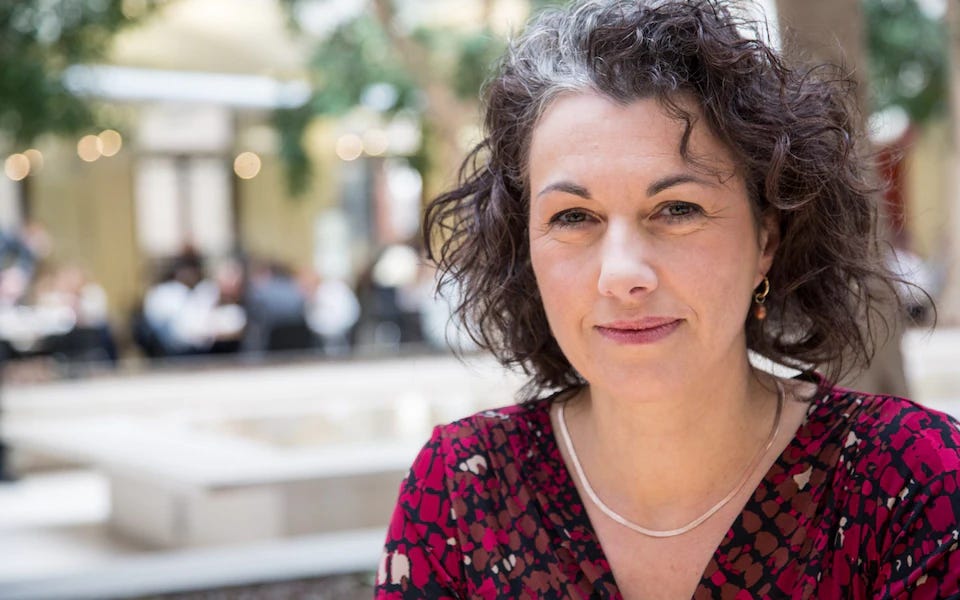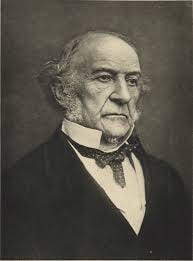Rape and Rotherham; A Tale of Two Religions
In this article I propose that neither of the common narratives about "Group-based Child Sexual Exploitation" were correct; something else is happening.
You turn if you want to
It was a hasty U-turn—another one. In the cramped aisle of a jet, travelling to Canada for the G7 summit, Sir Keir responded to a journalist’s question. Yes, he said, there would be a full statutory investigation into the grooming gangs.
The sudden reversal of his position was obvious to all, even the Guardian, which reported:
PM forced to cave in to clamour for statutory inquiry despite earlier dismissing them as amplifying far right demands.
How much of a U-turn was this?
In January this year, the Labour government had taken a different view. First, Jess Phillips, the Parliamentary Under-Secretary of State for Safeguarding and Violence Against Women and Girls, blocked a public inquiry into historical sexual abuse by Pakistani Muslim gangs in Oldham. Then, after Elon Musk suggested that this decision was a politically motivated cover-up, Sir Keir made a speech in which he called the information about the grooming gangs emerging into the public sphere “lies and misinformation”. He also accused politicians calling for an inquiry of “jumping on a bandwagon” and of amplifying the “Far-Right”.
This remained the Labour Party line in May when the Leader of the House of Commons, Lord President of the (Privy) Council and MP for Manchester Central, Lucy Powell, was asked, in a radio debate, whether she had seen the Channel 4 documentary on grooming gangs. She responded:
Oh, we want to blow that little trumpet now do we? Let's get that dog whistle out shall we?
Contrast this with the Statement to the House by the Home Secretary, Yvette Cooper, on 16th June, when she said:
To the victims and survivors of sexual exploitation and grooming gangs, on behalf of this and past governments and the many public authorities who let you down, I want to reiterate an unequivocal apology for the unimaginable pain and suffering you have suffered and the failure of our country’s institutions through decades to prevent that harm and keep you safe.
It is a massive leviathan of a U-turn.
One down, one to go
So the original government line was:
There is nothing to see here. Sexual abuse of children is bad, obviously, but it is mainly a problem of indigenous white males. Pakistani Muslims are involved too, but no more than one would expect. Those who say otherwise are far-right, racist Tommy Robinson fanboys. In short, the grooming gangs are not a Muslim problem.
This line has collapsed.
It was destroyed by the National Audit on Group-Based Child Sexual Exploitation and Abuse: The Casey Report, which said:
Despite the lack of a full picture in the national data sets, there is enough evidence available in local police data in three police force areas which we examined which show disproportionate numbers of men from Asian ethnic backgrounds amongst suspects for group-based child sexual exploitation…
And some of the limited data available to the report is simply breathtaking. In Rotherham, the Pakistani population is 4% of the town but accounts for 64% of the child sexual abuse and exploitation. This extract is from page 85 of the report.
Casey continued to examine the previous official denial that the problem existed or minimising of its scale:
Our collective failure to address questions about the ethnicity of grooming gangs has dominated political and institutional focus, with energy devoted to proving the point on one hand, or avoiding or playing it down on the other, and still with no definitive answer at the national level.
Despite reviews, reports and inquiries raising questions about men from Asian or Pakistani backgrounds grooming and sexually exploiting young White girls, the system has consistently failed to fully acknowledge this or collect accurate data so it can be examined effectively. Instead, flawed data is used repeatedly to dismiss claims about ‘Asian grooming gangs’ as sensationalised, biased or untrue. This does a disservice to victims…
Having definitively seen the destruction of the government’s position, we now turn to the second, and conflicting, common narrative. This is that, whilst there was indeed a Pakistani-Muslim perpetrator problem, this was being covered up locally for fear that any official highlighting the issue would be labelled a racist. Thus, the system as a whole could not detect the real nature of the problem. In short, Britain’s children were raped because we were too polite, too nice, and too politically correct to object.
The fear of being labelled racist
The claim has been repeatedly made that the principal reason for official denial, obfuscation, and cover-up of the mass rape of vulnerable girls was/is fear, on the part of the mostly White British officials in police, social services, and councils, that they will be tarred as racists should they act to protect the girls. The following examples illustrate the consistency of this narrative:
We will start back in May 2012, when the former Labour MP Ann Cryer highlighted this issue in the Mail:
Former Labour MP for Keighley Ann Cryer said that the authorities ignored complaints about them because they were 'petrified of being called racist'.
These innocent girls were ultimately 'betrayed' and left to live lives of 'untold misery,' because of political correctness, she said.
But former Labour minister Keith Vaz claimed today 'I do not think it is a race issue,' a view subscribed to by Greater Manchester Police.
Mrs Cryer dealt with problems of Asian sex gangs in her northern constituency for more than a decade.
'This is an absolute scandal. They were petrified of being called racist and so reverted to the default of political correctness,' she said.
'They had a greater fear of being perceived in that light than in dealing with the issues in front of them.'
In February 2015, Louise Casey (not at that time a Baroness) issued her Report concerning Rotherham Metropolitan Borough Council and their response (or rather denial) of large-scale sexual abuse of children by men of Pakistani heritage. Concerning the “race issue”, Casey recorded the testimony of a voluntary sector worker as follows:
The issue [of CSE perpetrators] was predominately Asian men and they were scared that would cause a problem. We would tell them that in the forums and they were uncomfortable. Stats on ethnicity were taken out of presentations. There was resistance to focusing on who the perpetrators were.
A police officer also stated:
They (the politicians) wanted to use any other word than Asian males. They were terrified of [the impact on] community cohesion.
In August 2017, Radhika Sanghani, writing in the Telegraph, said:
A fear of offending communities, or being labelled racist, has increased dramatically in our increasingly vigilant world. Employers, business leaders and politicians live in terror of finding a thoughtlessly uttered remark taken out of context and plastered over social media.
She also quoted Sarah Champion, the current Labour MP for Rotherham, She is one of a handful of politicians who spoke up on this subject
I think what we need to acknowledge is all of the towns where the cases have gone on, the majority of the perpetrators have been British Pakistani.
Are there cultural issues going on here? Is there some kind of message within the community? Hundreds of Pakistani men have been convicted of this crime - why aren’t we commissioning research to find out why this is happening?
Why indeed? These were excellent questions in 2017, and they remain unanswered.
In the Grooming Gangs debate in the House of Lords on 14th May, 2019, Lord Pickles said:
What we saw in Rotherham, and have seen in other parts of the country, is a complete breakdown of governance and of local government. Local government and national government are there to protect people, not to abandon them. The noble Baroness referred to some of the perpetrators who called the victims “white scum”. They are not the only ones. The people in charge in Rotherham regarded those girls as not worth looking at or protecting, and not worth thinking about. She is quite right to say that they also had racist views and stereotypes about people of Pakistani origin. It was because they held those racist views that they were too frightened to take issue with people of that origin.
This is an odd twist where Lord Pickles suggests that it was because the officials were secretly racist that they were shying away from tackling the issue of race at all. I would suggest that this is not the modus operandi of the typical racist. Despite that, his comment that we are dealing with a complete breakdown of governance is highly significant.
And the message continued. In February 2022 the Independent reported on findings of the IICSA Child Sexual Abuse Inquiry:
The report said children were being abused “in the most degrading and destructive ways” amid “extensive failures by local authorities and police forces”.
John O’Brien, secretary to the inquiry, called for a “cultural change” to ensure that child sexual exploitation can be understood and prevented.
“We need to break the culture where people are worried that they might be accused of being racist just because they record factual information,” he told The Independent.
This constant drumbeat forced the issue into the public mind: officials were silent for fear of being called racist. This 2014 headline by the BBC is a typical example of the propaganda effect of this message:
But is this really the case? Looking more closely at these reports, it was clear that:
There was fear of a backlash from the Pakistani-Muslim community
The race card was used to attack people who spoke up
The higher echelons of the police and other state organs imposed race-sensitivity training and other politically correct dogma into their organisations, generating nervousness over the issue
But does this add up to the reason why industrial-scale sexual abuse was ignored for decades? I suggest not. It does come close to explaining the silence.
Why, if fear of being called a racist is the issue, is this fear confined to the sexual abuse and exploitation of vulnerable (mostly) white girls? Why is there no nervousness over race when it comes to police action against crimes of dishonesty, drug dealing, extortion, or assault? Muslims are threefold over-represented in the prison population. Although Muslim communities roughly make up 5% of the general population in England and Wales, they make up 15% of prisoners. So there is no reluctance by authorities to arrest and prosecute Muslims per se. It is only when it comes to sexual abuse and exploitation of young girls that this excuse comes to light. Why should this be? On the surface, it makes no sense.
I conclude that the “fear of being called racist” is an excuse. It covers a deeper problem and is a convenient cloak for something much more central to what happened and continues to happen to vulnerable British girls. I am not saying the narrative is entirely false. All good propaganda uses mostly things that are true to create the larger deception. Yes, the race card would be played. And yes, people telling the truth would be called racist in an attempt to intimidate them, close them down, or deny them a public platform. But this does not explain decades of cover-up. It is a disguise, a veil. Something much more important is happening in our land. And we need to understand what it is and how it harms our people.
What is secular Britain?
We are told frequently, although not perhaps as frequently as before, that Britain is a secular country. By this, people mean that religion in general, and Christianity in particular, has little or no influence on the policies of government or the conduct of the broader society. The implication is that faith has been removed as a guiding national lodestar and replaced by… something else.
The great Scottish politician, William E Gladstone, writing in 1841 about the state and the church, identified the core position of Christian belief and the implications of its waning as follows:
…should the Christian faith ever become but one among many co-equal pensioners of a government, it will be a proof that subjective religion has again lost its God-given hold upon objective reality; or when, under the thin shelter of its name, a multitude of discordant schemes shall have been placed upon a footing of essential parity, and shall together receive the bounty of the legislature, this will prove that we are once more in a transition-state--that we are travelling back again from the region to which the Gospel brought us, towards that in which it found us.
And what was the state in which the gospel found us? Lesslie Newbigin, a missionary and thinker on the subject of The Gospel and Western culture identified this in his excellent work “Foolishness to the Greeks” when he concluded:
What Gladstone foretold is essentially what has been happening during the 140 years since he wrote those words. The result is not, as we once imagined, a secular society. It is a pagan society, and its paganism having been born out of a rejection of Christianity, is far more resistant to the gospel…
If the insight of Newbigin’s analytical work is correct, and we now live in a culture dominated and defined by a new pagan belief, does this explain these tragic events? Did a widely, if tacitly, accepted neopagan doctrine induce the decisions, taken over decades, by hundreds of organisations and thousands of individuals, to leave the girls to their fate?
To determine this, we must now examine the modern pagan view of sex and sexuality.
What does Paganism believe about sexual behavior?
Sex is central to paganism, as it is central to contemporary British culture. A few examples will illustrate just how far-reaching paganism’s ideological jurisdiction has become.
A first principle in the pagan worldview is an ardent rejection of boundaries. It holds that everything is permitted. Consequently, no limits may be placed on sexual expression. The Christian view of:
…strait is the gate, and narrow is the way, which leadeth unto life, and few there be that find it. Mat 7:14
…is rejected utterly. The exact reverse is imposed. Any restrictions upon an individual's path beyond their own will, preference, sentiment, or imagination is seen as an intolerable stricture and an abuse of power. For example, the blog Druid Life, in a post entitled “Sex in Paganism”, concludes the following:
As Pagans, we should not feel obliged to do anything sexual, nor obliged not to. Consent is everything. If we’re not harming, or abusing someone else, then what we do, or don’t do, should be our own business.
And this is exactly the mainstream view of sexual ethics in contemporary British society.
Pagan literature extensively discusses a second principle, closely related to the first: consent. Consent is everything. It is more than that; it is sacred. Consent does not mean simply a prohibition on coercive acts. It also, and more importantly, means an embargo on any social or practical restraint on willing sexual conduct. As prolific pagan author Christine Hoff Kraemer, who edited the 503 pages of “Pagan Consent Culture”, explained:
Consent culture is all about the practice of respecting others’ autonomy — their ability to make choices for themselves — as well as claiming the right to make one’s own choices. It’s about respecting “yes” as well as “no,” and it’s about far more than just sexuality. Consent culture is about helping a community develop a more robust concept of personhood, and about normalizing behaviors that protect that personhood. It’s about celebrating individual sovereignty, while also exploring how to balance individual sovereignty with community, and honoring each others’ needs.
So, to say that a sexual behavior is harmful is to dishonour the needs of the person whose conduct is criticised and to crush their autonomy. This is the ultimate sin in the pagan worldview. “Yes” must be respected. Behaviour must neither be questioned nor criticised, but normalised and celebrated.
An abstract from Christine Hoff Kraemer’s “Gender and Sexuality in Contemporary Paganism” further illustrates the degree to which many of the controversial topics in the sphere of sexual identity that have so dominated Western political discussion in recent years are also central to pagan belief and practice:
Declaring that all acts of love and pleasure are the rituals of the Goddess, contemporary Pagans widely affirm the sacredness of the body and of sexuality. Much of this belief stems from the erotic theology that entered Paganism through British Wicca, in which celebrants use symbolic or literal sexual ritual to participate in the ongoing creation of the universe. Pagans tend to be relatively accepting of same-sex relationships, BDSM, polyamory, transgender, and other expressions of gender and sexuality that are marginalized by mainstream society. Accordingly, sexual minorities have flocked to the movement and have begun to articulate a distinctively queer Pagan spirituality. Christian and Jewish feminist theologians have already found Paganism to be a valuable dialogue partner; as queer theologies increasingly challenge mainstream religions’ notions of gender and sexuality, Paganism has much to add to the discussion.
The third principle I wish to highlight is illustrated in “The Charge of the Goddess,” written by Wiccan priestess Doreen Valiente in the mid 1950s. This work makes an explicit linkage between sexual restraint and the institution of slavery:
And ye shall be free from slavery; and as a sign that ye are really free, ye shall be naked in your rites; and ye shall dance, sing, feast, make music and love, all in my praise.…
Let my worship be within the heart that rejoiceth, for behold: all acts of love and pleasure are my rituals.
To explore these beliefs further will take us down a rabbit hole populated by Aleister Crowley, Madam Blavatsky and other satanists. So we will leave the topic here, for now, simply noting that the pagan viewpoint is:
Boundaries indicate abuse
Righteousness is slavery
Consent trumps criticism
The practical application of these principles, especially of the central issue of consent, leads us to a final question: What is the age of consent in pagan belief?
At what age does paganism hold that the sovereign right of an individual for complete and unrestricted sexual autonomy commence? This was covered in a 2008 New Statesman article by “Lady Springwolf” (presumably her magical name)
Of course the big question is, when does a child become an adult. Some cultures believe the magical age occurs at puberty. Others set a common age at 13. To pagans, 13 is seen as the number of transition or change. Here the “1” represents an individual person stepping onto the divine path of the “3” Goddesses.
Thus, for our tacitly pagan society, puberty, or perhaps the age of 13 brings with it a sexual freedom that cannot be questioned, circumscribed, or guided by the traditions and faith on which we have built our society over millennia. As a result, our children are cast adrift.
What does Islam believe about sexual behavior?
In Islam, consent can influence matters of sex and marriage, but is far from absolute. For example, a father (and possibly, under certain circumstances, a paternal grandfather) is considered to have the power to compel marriages, referred to as jabr or ijbar.
Considering this position, Brandeis University summarises Islamic law on this matter as follows:
All four Sunni schools recognize the power of a father to contract binding marriages for both his sons and his daughters so long as they are minors (up to the age of nine or onset of menstruation for girls and puberty, up to age fifteen at the latest, for boys). The children have no say in the matter…
Like the pagans, Islam considers the onset of puberty in a girl to be all that is required for sexual relationships to be permissible. It also suggests an age, not thirteen in this case, but after the example of Mohammed, nine.
The 16th-century Egyptian Hanafi jurist Zayn al-Dīn ibn Nujaym (d. 1563) wrote that:
[The scholars] differed as to the time when one could consummate with a young girl. It is said that it is not permissible to consummate with her as long as she has not reached puberty, it is said he may consummate with her when she reaches nine years, and it is said he may consummate with her if her body is large enough to handle intercourse, otherwise he may not.
So, not even being nine years old and pre-pubescent is an absolute protection against sexual predation for a girl in Muslim jurisprudence. The confusion and anxiety of Muslim scholars dealing with this issue are apparent. For example, American Islamic convert Justin Parrott, writing in 2021 on the Age of Consent in classical Islamic law expressed the precarious position of girls as follows:
Islam was revealed to be relevant to all peoples in every time and place. The twin legal principles of permitting social customs in general, restricted by the imperative not to cause harm, allow some flexibility for Muslim societies to place appropriate boundaries to (sic) sexual relations as they continue to develop. It is not a coherent Islamic legal argument to claim that because the Prophet married his youngest wife Aisha at age nine, that it is permissible or beneficial for Muslims to do so while they live in greatly different social circumstances. There are other considerations in the divine law that cannot be ignored. The issue of child marriage leading to abuse is of dire importance for Muslims to address [emphasis added] and, through consultation, achieve some stable legal parameters appropriate to each region’s context.
In contrast to the pagan view that depravity is a demonstration of freedom, Islam brings in sex-slavery as a permissible form of sexual behaviour, again with Mohammed as the exemplar who should be emulated. The Brandeis University summary of Islam and Slavery notes that:
The Qur’an … prohibits owners from prostituting unwilling female slaves (Q. 24.33). Despite this protection against one form of sexual exploitation, female slaves do not have the right to grant or deny sexual access to themselves. Instead, the Qur’an permits men to have sexual access to “what their right hands possess,” meaning female captives or slaves (Q. 23.5-6; 70.29-30). This was widely accepted and practiced among early Muslims; the Prophet Muhammad, for example, kept a slave-concubine (Mariya the Copt) who was given to him as a gift by the Roman governor of Alexandria.
Finally, for an Islamic exclave in the west, one further aspect must be considered: how does Islam view non-believers? Islam’s path, as defined in the Qur’an, inevitably leads towards domination:
“It is he (Allah) who has sent his Messenger with guidance and the religion of truth, in order for it to be dominant over all other religions, even though the Mushrikoon (disbelievers) hate it.” (EMQ at-Tawbah, 9: 33)
And this is repeated in the Hadith, the corpus of the sayings of Mohammed:
“Verily Allah has shown me the eastern and western part of the earth, and I saw the authority of my Ummah (nation) dominate all that I saw.” (Saheeh Muslim, hadeeth #2889)
And this domination is primarily political, not spiritual. It represents political and legal ascendancy, not willing adoption by all of mankind. It implies force, power, and coercion. For example, the Islamic blog DUATT concludes:
So how will Islam dominate the world? Most likely by force! If the people do not embrace Islam and implement the Sharee’ah on their own accord, it becomes an obligation upon the Muslims to fight and implement Islam. In countries such as Britain and America, their people have clearly rejected to embrace Islam and will never choose to live by the Sharee’ah. Therefore, the only two ways in which these countries can become under the domain of Islam is by the last two options, a group of Muslims rise and overthrow the government, or an Islamic state is established elsewhere and comes to conquer these nations.
Hence, Muslim belief is that the world of Islam shall include Britain and America. It will achieve this by any means necessary, likely using violence. With this world-view, the mass rape of vulnerable white girls starts to appear acceptable, almost required.
Rotherham: a tale of two religions
In 1939, on the eve of the Second World War, T.S. Eliot gave a series of lectures which were eventually published as a short book titled The Idea of a Christian Society. In this, he critiqued the apparent neutrality of liberal societies and their tendency, in the name of tolerance, to abandon any definite positive culture. This, he feared, may leave a cultural and spiritual void. He saw a risk that this emptiness would be filled either with pagan or totalitarian ideologies. He summarised this as follows:
The choice before us is between the formation of a new Christian culture, and the acceptance of a pagan one.
Sadly, through the tumult of the Second World War, his warning was ignored. I believe Eliot was correct; that the British people have chosen to accept a pagan culture and reject their Christian heritage.
In more recent times, Britain has also imported a foreign culture that combines all aspects of life — politics and statehood, law and punishment, faith and morality — into a single system of thought. This system is totalitarian in its expression, expansive in its aims, and harsh in its application. It is called Islam, which means submission
In rejecting Christian virtues, our society has had little option but to revert to the pagan embrace, and indeed deification, of vice. The associated torment and misery have advanced in lockstep. Perhaps even worse is the fact that our recent backsliding to neo-paganism commenced at a point where the work of the Gospel had done much to restore, energise, and transform our nation. This could not be swept away or ignored. Instead, it was metastasized: Christian virtues, applied without restraint, prudence, wisdom, or discernment, also now wreak havoc. Forgiveness has become license. Self-reflection and confession of sin have become self-loathing and the destruction of our heritage. A determination not to judge hypocritically has become an inability to discern what is righteous from what is evil. As Chesterton wrote, the virtues “have gone mad”.
Timothy Whitaker, writing in 2021 in a blog titled “On Being Christian in Our Strange Secular, Neo-Pagan Society” pointed out that:
This is why the secular neo-pagan is both morally permissive and moralistically fanatical.
Thus, the permissiveness and adoption of the pagan view of sexual morality (everything is permitted) combine with a fanatical moralism that says:
You cannot question this 13-year-old girl’s informed choice of sexual lifestyle.
You must not notice the religion and ethnicity of the majority of those sexually exploiting young girls.
You must not bring your outdated Christian ethics into the public sphere.
Thus, moral permissiveness and fanatical moralism combine to disarm the normal human reaction to protect innocence against evil, predatory profiteering. Looking at this confluence, Lord Pickles saw a complete breakdown of governance. He is correct, but that governmental failure is merely a symptom of a greater and wider collapse.
Factor in an Islamic faith that considers sexual exploitation to be permitted, even perhaps part of the great Islamic struggle against the infidel, and you have a perfect storm.
The girls are abandoned by their society and preyed upon by an alien culture. No one stands up for them apart from a few isolated and gallant individuals. Society as a whole is silent. Police, social services, councils, churches, politicians, and the press say little or nothing. The betrayal goes on for decades.
An inquiry will now commence, but will it deal with the real issues? Will it deal with the two religions that have perpetrated this abuse? I think not. What is needed is national repentance, a return to our Lord and a concerted mindful, intentional and courageous demolition of the evil ideas that brought about the rape of so many girls.










This article was hard-hitting and provoked deep grief and tears. But despite my reaction to the topic, it is an exceptional piece of writing. God bless those who are willing to highlight and address horrific issues such as this. God bless those who risk so much by seeking truth and justice for these girls who've been so badly assaulted. How blessed are the individuals who are born into good Christian families and brought up under the love, protection and wisdom of their God-loving and God-fearing parents. God bless those who've been subjected to the deepest violation and abuse - may they seek truth, justice and healing.....and in so doing, find the One who can offer all three, Jesus Christ.
Satanism rather than paganism I’d say. Thank you for writing this, David.